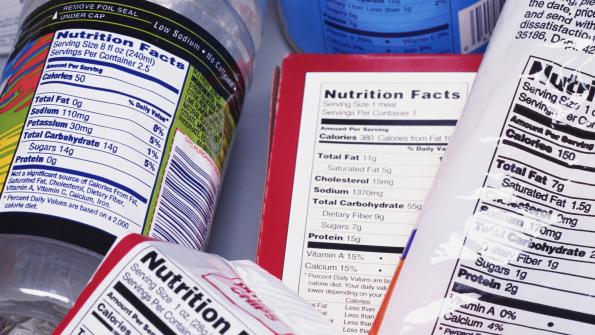Connecticut governor signs GMO identification law, but labels remain a hope for the future
Connecticut has become the first state requiring food made with genetically modified organisms, or GMOs, to be labeled. However, the law is largely ceremonial, and will require, among other caveats, the participation of eight other states before shoppers can expect to see labels at the store.
GMO refers to plants genetically engineered to be resistant to herbicides and pesticides. Genetically tinkering with crops in this way helps famers yield greater numbers of more robust crops, but critics of these methods argue GMOs are dangerous for human consumption.
The American Academy of Environmental Medicine has urged doctors to prescribe non-GMO diets, citing animal studies showing gastrointestinal and immune system damage. The Institute for Responsible Technology reports instances of chronic illnesses in humans has been on the rise since GMOs were introduced in 1996. While research is insufficient to confirm GMOs are a contributing factor, many experts agree they aren’t helping.
A sizable portion of the most commonly grown crops in America are GMOs, according to USA Today. 95 percent of the nation’s sugar beets, 94 percent of soybeans, 90 percent of cotton and 88 percent of feed corn has been modified genetically.
As for what we actually eat, estimates range anywhere from 40 percent to 75 percent of food in any given supermarket contains genetically modified ingredients, USA Today reports. However, the actual percentage of genetically modified material in these food products is usually small.
Gov. Dannel Malloy held a bill signing ceremony on Wednesday, Dec. 11, for the bill, which requires that items intended for human consumption be clearly marked if they are entirely or partially genetically modified, according to local TV news source WFSB.
At the signing, Malloy said, “People need to demand GMO labeling.” He added, “Some companies are doing this and we need to move in that direction.”
In a statement, Malloy expounds: "I am proud that leaders from each of the legislative caucuses can come together to make our state the first in the nation to require the labeling of [Genetically Modified Organisms]. The end result is a law that shows our commitment to consumers' right to know while catalyzing other states to take similar action."
But the bill doesn’t change anything. Not yet, at least. According to the language of the legislation, a combination of northeastern states with a combined population of at least 20 million need to sign similar legislation, according to WFSB. The league of states would need to include Maine, New Hampshire, Vermont, Massachusetts, Rode Island, New York, Pennsylvania and New Jersey.
Also included in the new law is language protecting local farmers, ensuring regional adoption of a labeling system before requiring farmers to analyze and label their GMO crops, WFSB reports.
But some are encouraged by the progress, even if it is only symbolic at this point. “It’s little steps at a time,” Lisa Storch, who owns a local health food store, told WFSB. “[We are] trying different avenues as far as healthy eating and what works for you.”
_____________
To get connected and stay up-to-date with similar content from American City & County:
Like us on Facebook
Follow us on Twitter
Watch us on Youtube




















